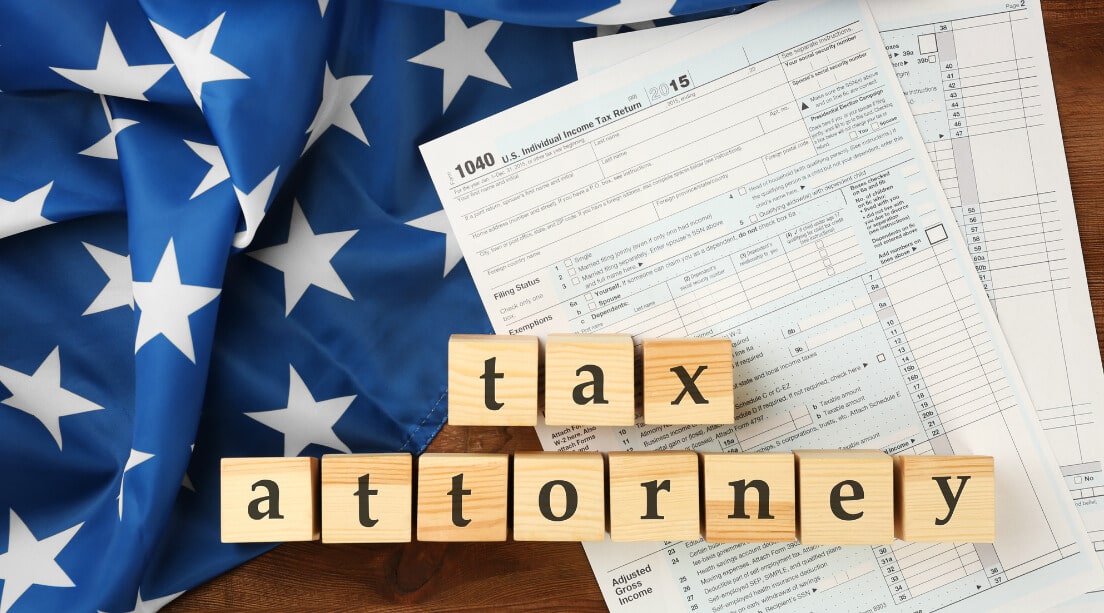Speak to an Experienced Tax Lawyer
Answer the following questions to schedule a free consultation
Answer the following questions to schedule a free consultation
To get started, give us a call during normal business hours and share some basic details about your case.
We’ll listen to your story, understand your goals, and create a legal strategy that aligns with your needs.
Receive top-quality legal representation. We’ll continue fighting until we get you the outcome you deserve.

The sheer volume and breadth of United States tax law creates the potential for confusion and a lot of stress. Mistakes on tax returns can increase the risk of getting audited, which in turn, can lead to significant penalties if not properly addressed. Furthermore, state and federal agencies have the ability to take legal action against those they believe are evading their tax responsibilities. Whether you need to defend yourself against criminal charges or want to be proactive in avoiding future problems, you may want to get advice from an experienced tax lawyer. With their expertise, you’ll be able to navigate the rough terrain of U.S. tax law and discover the most favorable resolution to your case.
In a tax audit, the Internal Revenue Service or your state tax office reviews your tax returns to determine if you have failed to accurately report your taxable wages and earnings, the refund you claim or the tax that you owe. The IRS flags returns for review when the information deviates from expected norms or when it contains internal inconsistencies. For instance, you may have reported an expense for your company but not reported any self-employment tax or any business income. Should you report salaries and wages as a deductible cost, an absence of payroll taxes or records may raise suspicion. If a partner or other person involved in a transaction has been audited, you may be the subject of one as well.
The Internal Revenue Service may conduct the audit in writing or in person. You may wish to select the office of your accountant as the location for an in-person session. This is especially helpful if you relied upon the CPA to prepare your tax returns. During the interview, your accountant can explain the basis for how income and receipts were counted and how deductions were claimed.
If you get a notice, you may want to contact an experienced tax professional in your area. They can examine the notice and, in certain circumstances, obtain for you additional time to prepare. More importantly, choosing a professional experienced with IRS matters will help you gather the necessary documents to show that you have reported your income accurately and properly taken deductions. Typically, an auditor will want to see bank statements, receipts, cancelled checks and other transaction details to substantiate the information on your return.

If you owe back taxes, the IRS can file a tax lien against your property. A federal tax lien gives the government a legal right to sell your property to collect on the tax debt. Furthermore, if you sell the property at least some of the available proceeds must be applied to your tax debt. With the assistance of an experienced local tax professional, you’ll quickly realize there are a number of tax relief options available to people who owe money to the IRS. This may take the form of a payment plan or a settlement in which the state or federal taxing authority accepts a reduced amount. While not all situations call for tax settlement, people who owe money often realize that the IRS is willing to explore your situation to determine if a tax settlement is possible. The agency will consider whether, as a practical matter, it can collect on what you owe. If the full balance is too great for a realistic expectation of payment, you might benefit from the compromise and settlement approach. A top tax professional can discuss your eligibility for one of these programs.

The failure to pay your tax debt, by itself, will not land you in jail. However, criminal or other more severe penalties await you if you are guilty of tax evasion. The offense can arise if you intentionally under-report your income or claim deductions that you are not entitled to. If you hide assets, such as creating sham transfers (such as when you put your land in the name of a family member or someone else without getting fair value) or not reporting them, you may also be guilty of tax evasion. Your mere failure to pay taxes is not a crime.

As the famous Benjamin Franklin once said, “Nothing is certain except death and taxes.” Based on this wise yet ominous statement, you’ll probably need the services of a CPA or tax lawyer at one point or another. But how do you know which type of professional you need? If you need help with the financial aspects of taxation, such as estate planning and filing tax returns, a CPA accountant would suffice. However, if you are dealing with an issue involving the legal aspects of taxation, such as payroll issues, international tax laws, filing a lawsuit against the IRS or defending against criminal charges, it’s best to consult with an attorney who specializes in tax law.
If you are being audited by the IRS, an experienced tax lawyer can negotiate with them on your behalf. Oftentimes, the complexity of tax law and the language that’s used can make it difficult to for the average person to know how to proceed during an audit. By signing a power of attorney, your lawyer is able to communicate directly with the IRS so you don’t have to. Their expertise can go a long way towards proving that you’re a responsible taxpayer, and settling the debt for less than you owe.

Based on recent IRS estimates, nearly a fifth of all taxpayers in the United States fail to fully adhere to the law when completing their tax returns. However, most of this arises from honest mistakes such as forgetting to report a small amount of side income or miscalculating expenses. Generally, the IRS will not pursue criminal charges unless they have evidence you’re actively hiding large sums of money or intentionally defrauding the system. While only a small percentage of audits lead to criminal charges, the government takes it very seriously when it does happen. The penalties for tax crimes are harsh – you face up to five years in prison and fines of up to $250,000 if convicted. If you are facing criminal charges for tax evasion or tax fraud, it is absolutely within your best interest to hire an attorney. A top attorney with trial and criminal defense experience — especially in tax cases — can help you fight the charges.

With a top rated lawyer specializing in tax matters, you can plan your business affairs so as to reduce your tax liability. For instance, tax issues may arise from how you organize your company. By default, a corporation’s profits are taxed at both the corporate level using corporate tax rates and when dividends are paid to individual shareholders. To avoid double taxation, an experienced tax attorney or corporate lawyer with a good command of tax law can explain can help you establish a Subchapter “S” corporation under federal tax law. Under this structure, the earnings pass through the corporation and are taxed only at the personal level. Furthermore, if you hold onto your stock and later sell it when it appreciates, the gains get taxed at lower rates than those for salaries and wages.

If you’re planning to start a non-profit for tax exempt entity, you need advice from a tax attorney on drafting your organizational documents and bylaws to obtain a determination of your tax exempt status. An attorney can also advise you on how to raise and handle donations and other revenues into your organization. You also need information and advice from a lawyer on the types of activities that could threaten your tax-exempt or charitable status, such as impermissible political campaigning.

During the estate planning process, minimizing federal and state taxes is often top priority for many people. Anyone who is looking to pass on significant assets, in the form of real estate, trusts, life insurance proceeds, or anything else, is faced with the potential for high taxes. Wealth is built from many years of hard work and sacrifice, so it is important to make sure it gets passed on to the right people with the least amount of taxes possible. A law firm that specializes in estate planning and tax law can help you create the best strategy for passing on your wealth. They will consider all of the relevant options and issues, including wills, trusts, life insurance, health care proxies, powers of attorney, taxation, asset protection and more.

Special tax and other laws may apply if you work abroad or have interests in international accounts or ventures. For example, the federal Bank Secrecy Act requires you to report the account and transactions in it to the Department of Treasury. Even with domestic bank accounts or transactions, you must report deposits that exceed $10,000 in cash.

When searching for a tax attorney in your local area, you can start by seeking recommendations from family, friends and colleagues. If you have a good relationship with your local accountant or CPA, you could also ask them if they know any lawyers they could recommend. If you can’t find an attorney through your network of contacts however, online directories can be extremely helpful. These websites display listings of local attorneys with a variety of specialties, including estate planning and tax law, and provide a healthy level of transparency.
During your search for legal representation, look for attorney ratings and reviews online. You can find this information on legal websites and online directories. Pay extra attention to the feedback provided by previous clients, as it often a good measure of future success.

When contacting a lawyer, ask if they offer a free consultation. Many lawyers will provide this as a way to better understand your needs and ultimately win your business. Use this as an opportunity to learn about your legal options. You should also ask the lawyer how much their services cost, and whether their fee structure is reasonable and affordable. If litigation becomes necessary, ask the attorney if they have experience representing clients with similar cases to yours.
